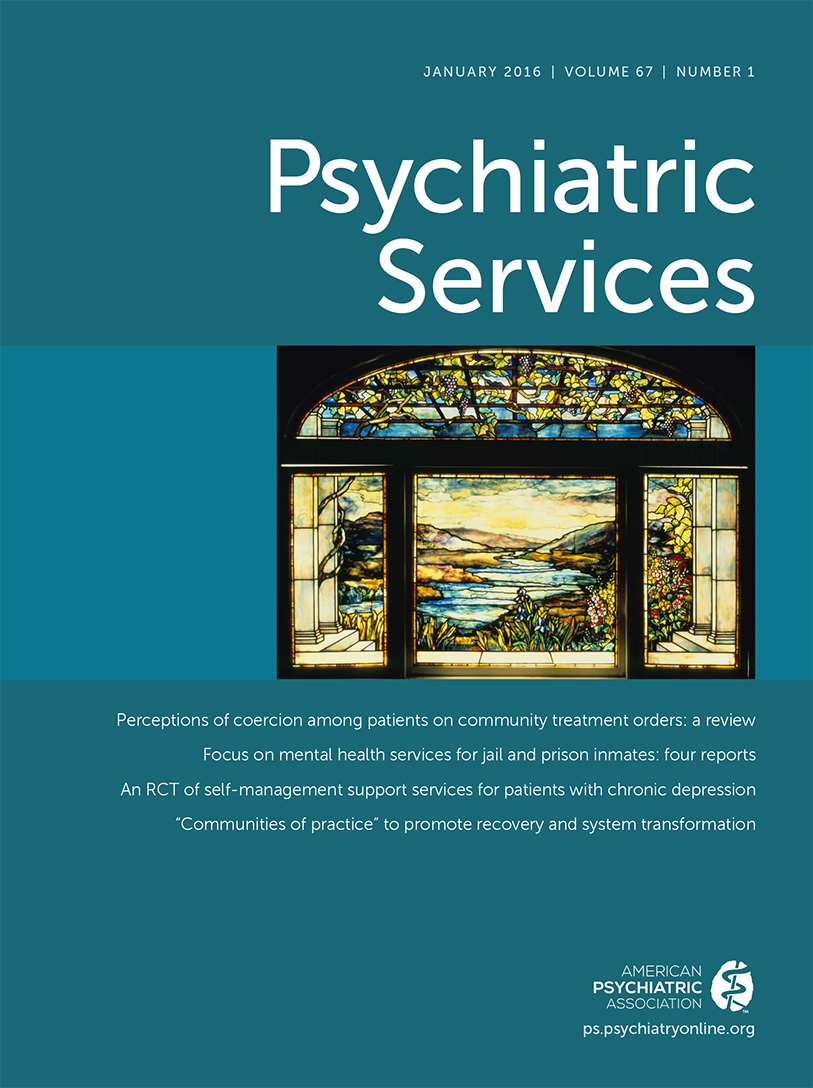Telepsychiatry Consultations in Primary Care Coordinated by Virtual Care Navigators
Most mental health services are provided in primary care environments, especially in rural areas where psychiatrists are frequently in short supply and, if available, have long waiting lists. Even when psychiatrists are available, some patients refuse to see a community-based psychiatrist for fear of stigma and privacy concerns. Alternative models of collaborative care, often involving embedded or supervising psychiatrists or psychiatrically trained nurses working in primary care environments, have demonstrated their effectiveness and are increasingly being used. In recent years telepsychiatry services have been added to this collaborative model.
Health Link Now (HLN; www.healthlinknow.com), a telepsychiatry company, has been providing mental health services via its fully integrated telemedicine system to implement a patient-centered medical home model of care to over 80 primary care clinics in Wyoming, Montana, and Washington State since 2012. The system is facilitated by a Centers for Medicare and Medicaid Services innovation cooperative agreement. The main goals of the new model have been to radically reengineer the process of telepsychiatry collaborative care and to provide more effective, efficient access to high-quality care while lowering the overall costs.
Critical to the success of this model has been the creation of a new breed of nonclinical physician extenders, called virtual care navigators (VCNs), who act as liaisons and coordinators between patients, providers, and clinic staff. These positions are an extension of the traditional nonclinical in-person case manager role, now performed fully online. VCNs provide patients effectively their own “concierge” service that has a strong patient education focus and assertive support to encourage their adherence to treatment regimens. The core of the VCN skill set is excellent communication skills by phone, e-mail, and video, combined with good organization, patience, and empathy.
VCNs take referrals from primary care clinics, contact patients (usually by telephone) and take note of all administrative, consent, financial, and legally required information. They also document a clinical scan of symptoms and details of general medical, psychiatric, and developmental history. They obtain information about patients’ local pharmacies, laboratories, primary care providers, and medications and document all of this in the HLN cloud-based electronic medical record. They then set up clinical appointments and show patients how to connect with providers via the secure telemedicine system, training them on any technical issues as necessary. They also train patients to use the HLN patient portal, where they can make their own appointments, communicate with providers, and find health education modules.
The telepsychiatrist reviews the VCN-collected clinical and administrative information prior to patient consultations. This substantially reduces the administrative documentation requirements and allows psychiatrists to focus on clinical matters. After a patient’s first telepsychiatry consultation, and once a full history and diagnosis and treatment plan are documented in the electronic medical record, with electronic prescriptions and orders completed by the telepsychiatrist, the VCN contacts the patient within two days to ensure that he or she has picked up any specified medications and is following up with any other recommended referrals, orders, or appointments. Psychiatrists’ treatment plans are made available to the referring providers with the consent of patients, as well as to patients themselves in the HLN patient portal. The VCN maintains contact with patients to help them navigate the treatment system while they receive treatment and continuing mental health follow-up suggested by their telepsychiatrists, potentially for an extended period. The VCNs have over time become the hub for communication and administrative tasks for specialists and primary care providers, clinics, and patients and are the “glue” that makes the treatment plan work.
Patients consistently report high satisfaction with this patient-centered model of care, which has decreased trips to emergency departments and unnecessary hospital days. The system can respond quickly, for example by setting up rapid appointments for patients if necessary and walking them through psychoeducation and treatment. Patients who recognize improvement sometimes express regret about not seeking treatment earlier, noting that embarrassment about symptoms and a lack of nearby psychiatrists were important barriers.
Currently Medicare and Medicaid do not reimburse for the services of VCNs because they are not clinical employees and do not need clinical licenses. HLN VCNs have a wide range of educational backgrounds, ranging from high school graduate to master’s degree. These individuals are currently funded through a Healthcare Innovation Award, and the project hopes to prove that the efficiencies resulting from this model of care, with fewer inpatient stays and emergency department visits in particular, will lead to the opportunity for “time-based care” models of payment for this form of collaborative telepsychiatry care in the primary care environment.



